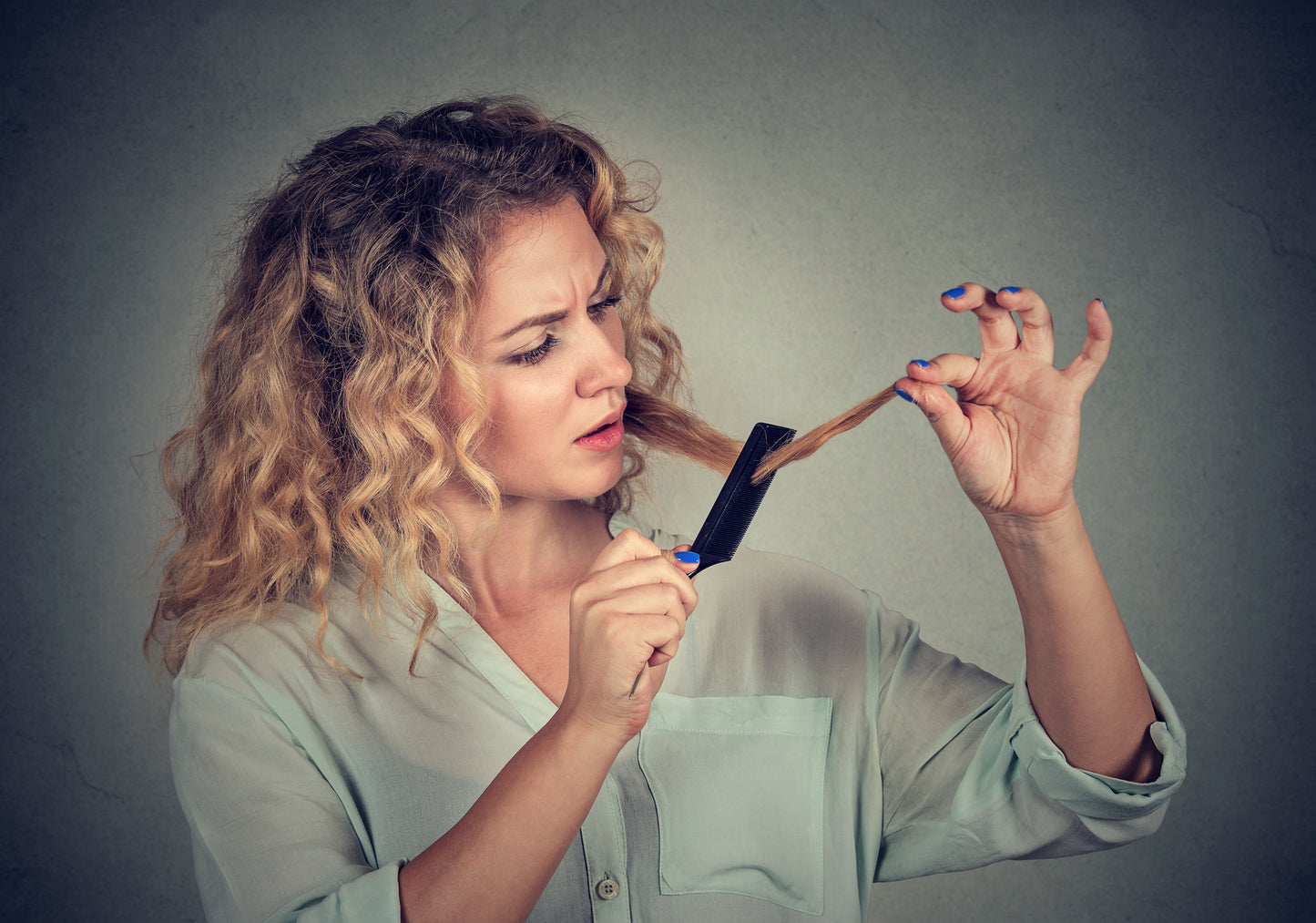Many things contribute to healthy hair, such as shampoo, conditioner, hair oil, and other high-quality products. But did you know that the type of water you use to clean your hair can also affect its health and appearance?
Hard water can dry out hair strands because it strips away the natural oils, leaving them dry and brittle.
If you’re concerned about hard water's effects on your hair, you’ve come to the right place.
In this article, we take a closer look at what hard water is, how it affects hair, and ways you can minimize its drying effects.
What Is Hard Water?
Hard water has high levels of minerals like calcium and magnesium. These minerals come from rocks that are dissolved in the water.
When they're not properly filtered out, these minerals can build in water pipes and make their way into our showers and faucets, becoming part of the water we use every day.
Hard Water vs. Soft Water
Soft water has undergone water softening systems and has low levels of calcium and magnesium. It is highly beneficial to your hair because it does not contain the harsh minerals that hard water does.
In fact, soft water enhances the cleaning effects of soap, shampoo, and other products. This means your hair will remain clean, moisturized, and healthier overall.
Effects of Hard Water on Our Hair
The high mineral and chemical content in hard water can lead to dull, lifeless, dry, and brittle hair. This can cause hair breakage and split ends, resulting in the damaged cuticle opening up.
The amount of damage caused by hard water depends on how often you rinse your hair, how long you leave it in the shower, and how much shampoo you use.
In addition to the damage that hard water can bring to hair strands, it can also cause problems for your scalp. If you have a sensitive scalp, hard water can make it itch and flake. It may even lead to an infection if left untreated.
Why Hard Water Affects Your Hair
The main reason hard water affects your hair is its high mineral content. The minerals dry out the scalp, and the dryness is difficult to reverse if you keep washing it with hard water.
The signs of hard water are usually easy to spot:
- Spots - Hard water leaves spots on your shower curtain and tiles. This is because it contains high levels of iron, which reacts with other minerals in the water and forms a brownish residue. These stains are almost impossible to remove and only worsen over time.
- Mineral Stains - Hard water can also leave mineral stains on your skin and hair. These are usually white, but they can create other colors depending on the specific chemical composition of the hard water. The best way to prevent these stains is by using a filter that removes all of the minerals from your water supply before it enters your home.
- Low Water Pressure - The minerals in hard water clog up the pipes and interfere with the flow, thus leading to low water pressure. This can be frustrating when you are trying to shower or wash your dishes.
- Remainder Film - Another issue with hard water is the film that it leaves behind. This thin layer of minerals can be very difficult to remove, as it lingers on your hair, skin, dishes, glassware, and clothing.
How To Prevent Hard Water From Affecting Your Hair
If you have hard water in your pipes, there are a few things you can do to minimize its effects on your hair:
- Use a water softener: Consider getting a water softener system installed to greatly reduce the amount of minerals in your water supply.
- Use a clarifying shampoo: Switch to a clarifying shampoo that will remove minerals from your hair. This type of shampoo contains fewer ingredients that dry out the hair, so it can minimize the damage caused by hard water.
- Use a moisturizing conditioner: Condition your hair after shampooing. This will add moisture back to your hair and combat the drying effects of hard water.
- Use a shower filter: A shower filter can reduce the amount of minerals that exit through the showerhead, thus minimizing the potential for buildup in your strands.
- Use apple cider vinegar: Mix one part apple cider vinegar with three parts water and use it as a rinse to remove residue and buildup from hard water minerals.
The Takeaway
Now that you understand why and how hard water impacts hair, you can minimize its effects. Fortunately, there are many things you can do to protect your strands against damage from these harsh minerals.
Whether you choose to install a water softener system or just use products like clarifying shampoo, moisturizing conditioner, or apple cider vinegar rinse, they will help ensure a healthy head of hair.











